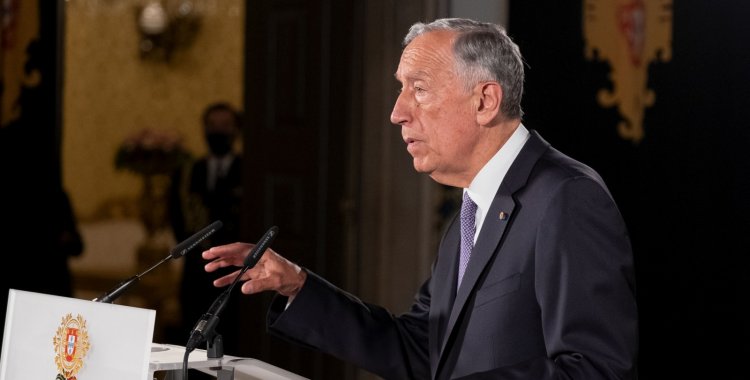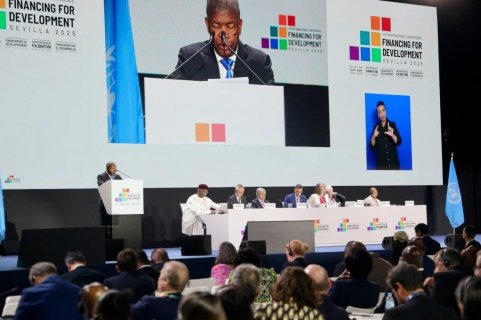"What people want is a Community of Portuguese Language Countries (CPLP) for the people because, if it does not respond to the problems of the people, it does not exist," said Marcelo Rebelo de Sousa.
"It can exist for international contacts and to support international applications - and it works very well there - but it has to intervene in the concrete problems of the people," he added.
The Portuguese head of state was speaking Thursday during an international seminar, organized annually by RDP Africa, which this year marks the 25th anniversary of the broadcaster and the CPLP itself, and in a debate with Cape Verdean head of state and acting president of the Lusophone community, Jorge Carlos Fonseca.
The two heads of state agreed on the need to "increasingly turn" the CPLP to the practical issues of the lives of the people, such as visas, considering that the lack of answers in these areas "is a brake" on the vision of the community.
The Portuguese President pointed, in this context, the "three fundamental problems" in the current CPLP context: mobility, health response and approach to the economic and social effects of the pandemic.
Marcelo Rebelo de Sousa considered that, in general, the entire international community has failed in the response to the pandemic, adding that among the Portuguese-speaking countries the steps taken, particularly in the provision of vaccines, have been mostly bilateral and little within the CPLP.
"In the future, we have to look at this as we have to look at the economic and social consequences of this pandemic," he said.
Recognizing that there is a part that only each country and each economy can solve, Marcelo Rebelo de Sousa argued that, "at the very least" the dialogue, the joining of efforts and the search for solutions should be "taken further", both bilaterally and within the Lusophone bloc.
He considered, on the other hand, that the community has "worked less well in monitoring specific situations of States", considering "important, when there is a more pronounced crisis, to know how to intervene.
"The CPLP cannot avoid being attentive and operational in relation to what is happening, if only out of solidarity with one of its members, but we also feel that sovereignty then leads to each one defining the terms of its own jurisdiction and its exercise," he said, in an allusion to the recurring criticism of the inaction of the community in crises such as Cabo Delgado in Mozambique.
On the other hand, Marcelo Rebelo de Sousa acknowledged that often the intervention of the CPLP exists from the diplomatic point of view and bilateral contacts, but is not known or "cannot be visible.
During the debate, the two heads of state expressed themselves "eager" and "optimistic" with the possibility of, during the next summit of heads of state of the organization, scheduled for July in Luanda, be signed the Convention on Mobility in CPLP, considering that will represent a "turning point" and will be "the basis" of a "true community" of people.
Marcelo Rebelo de Sousa praised the role of the Cape Verdean presidency of the CPLP in the agreement on mobility reached among the nine countries, considering that it is "the decisive push" for a future community closer to the people.
"The challenge of the coming years is this: either people are the center of the CPLP or the CPLP fulfills some political and diplomatic missions and others, but largely bypasses the people," he said.
The CPLP is made up of Angola, Brazil, Cape Verde, Guinea-Bissau, Equatorial Guinea, Mozambique, Portugal, Sao Tome and Principe, and East Timor.







